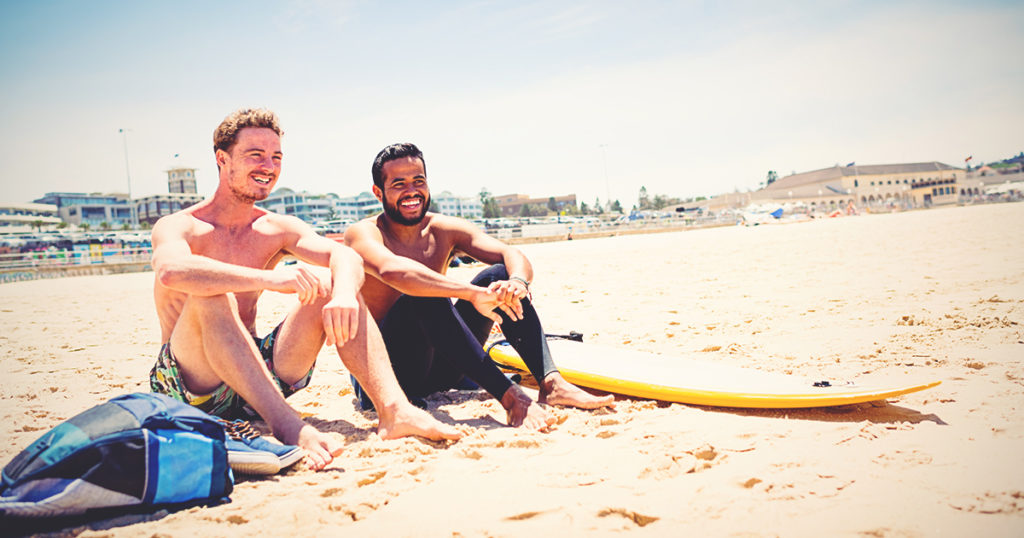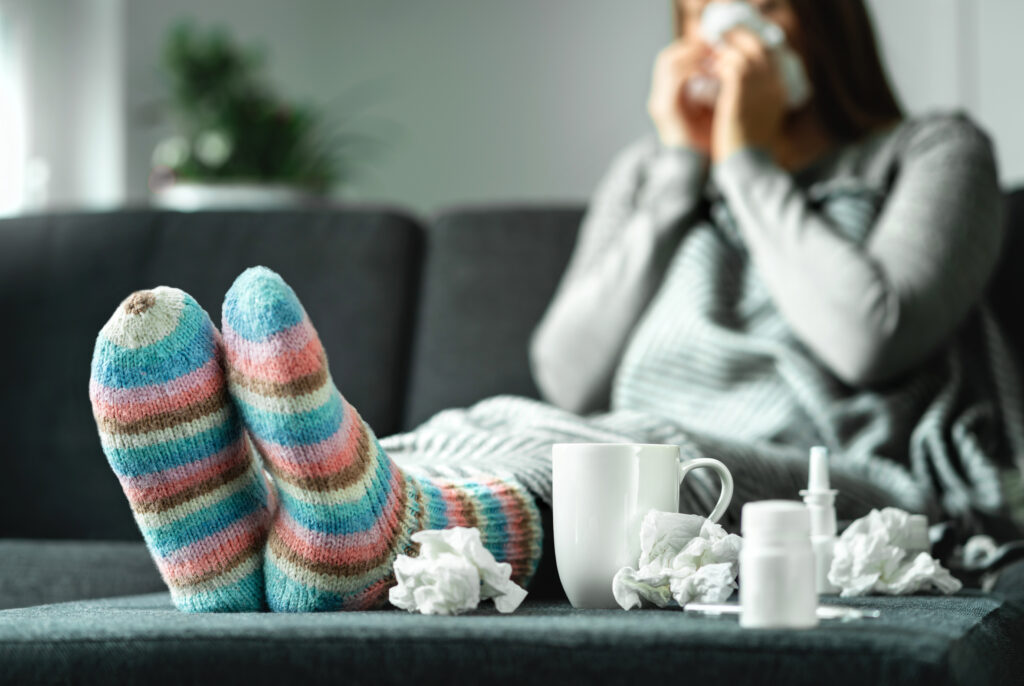As we head towards the hot summer months in Australia, it’s important to take care of yourself so that you feel your best.
While you might be used to warm weather, the Australian summertime can take a toll on your health in unique ways. We’ve put together a list of 10 helpful tips to make the most of your summer and enjoy everything the season has to offer.
1. Sun protection
Here in Australia, the sun is particularly strong. Without protection, it can be punishing. Make sure to use high-quality sunscreen of at least sun protection factor (SPF) 30 to protect your skin from the sun’s harsh rays. It’s a good idea to apply a generous layer of sunscreen first thing in the morning, after your shower and before you get dressed, so that you don’t leave any areas of skin unprotected. If you’re heading to the beach, you’ll need to reapply sunscreen every two hours, depending on how often you swim and how fair your skin is. The bottle will usually contain information on the best way to use the product.
Choose loose-fitting clothing that covers vulnerable areas such as your back, neck and arms, and wear a hat and sunglasses to further protect your ears, nose and eyes. These extra layers of protection will help you to avoid nasty sunburn, which can be very painful.
It’s wise to stay out of the sun completely during the hottest part of the day, usually between 11am and 2pm. If you’re sitting outside, find shade under a tree or take your UPF-rated umbrella to the beach.
2. Clothing
Loose-fitting cotton clothing is a good option to protect your skin from the sun and keep you cool, but there are other options for more intense sun exposure. When you’re in or on the water, the amount of UV radiation you’re exposed to can actually increase, as the sun’s rays shine down from the sky and reflect back up from the water. It’s easy to find fashionable long-sleeved T-shirts, rash vets and swimsuits that offer SPF 50 sun protection so that you can enjoy your time outside without worrying about sunburn. Make sure to apply sunscreen to any areas not covered by clothing and reapply regularly.
3. Hydration
Australian Government recommendations suggest drinking at least 2.1 litres of water per day depending on your age and circumstances. And if you’re exercising, maintaining your fluid intake is especially important. This will safeguard your body from dehydration, which can cause loss of concentration, headaches and even sun stroke in extreme cases. If you think you might have sunstroke, see your doctor immediately.
The best way to avoid feeling unwell is to buy a reusable water bottle and to keep with you at all times, making sure to top it up regularly throughout the day.
4. Exercise
Moving your body every day is a great way to care for your mental, emotional and physical wellbeing. Go for a morning walk each day before the sun heats up, take advantage of exercise classes offered at your local community centre or your education provider, or use one of the many fitness apps available on your phone. Medibank Live Better at home has a range of free activities designed to help you eat, feel and move better. This will help you keep in shape and boost the feel-good chemicals in your body.
5. Keep cool
Many accommodation options now include air conditioning. Experts recommend closing doors and windows and setting the temperature to 24 degrees if you’re home during the day, as this is both comfortable and economical. If you don’t have air conditioning or you don’t want to pay a higher electricity bill, make the most of natural air flow by encouraging the breeze to flow through your room. A good way to stop the heat while letting air circulate is to open your windows while keeping your curtains or blinds closed. A fan can also help move cool air around your home.
6. Look after your pets
If you have a pet living with you, help them stay cool by making sure they have access to fresh clean drinking water at all times. Provide them with a cool, shady spot to retreat to during the day. If they enjoy being in water, give them a small paddling pool on really hot days so they can cool off. If your pet has a thick coat, you can also book them into a pet spa to have their coat clipped. This will help them stay cool during the warmer months from December to February.
7. Eat well
Having a healthy diet will give you the energy you need to get out and enjoy everything the Australian summer has to offer. Eating three meals a day, with healthy snacks when you’re hungry, gives your body the fuel it needs to stay well. Try to avoid fast food, processed sugar and salt, excess alcohol and high amounts of caffeine. Instead, pack each meal full of fruits, vegetables, leafy greens, wholegrains, nuts and seeds, and lean protein such as pulses, legumes, fish and white meat. Medibank Live Better offers plenty of great recipes and meal ideas available for free online.
8. Stay social
Scientific research has documented the positive effects of staying connected to family, friends and co-workers. Try to make sure you maintain these important connections by keeping in touch regularly, organising frequent activities with others, attending social events, joining clubs you’ll enjoy and being an active part of your local community.
9. Allergies and illness
Spring and summer can trigger allergies. Visit your doctor and make sure you have the right medication, keeping a stock of anything you need to stay healthy. Colds and flu can also strike during summer. To prevent illness, make sure you wash and sanitise your hands regularly and, if a friend or relative is sick, wait until they’re fully recovered before you visit them. If you do become unwell, visit your doctor for support and advice, and focus on resting, eating a healthy diet and drinking lots of water.
10. Sleep
Sleep is an important part of looking after your health. Maintaining healthy sleep hygiene will help you get restful sleep, which has both short-term and long-term health benefits. Try to go to bed at the same time each night, and make sure to turn off all your devices and screens at least 30 minutes before you sleep.
Make your bedroom as dark as possible and use earplugs and a sleep mask. This will send a signal to your body that it’s time to rest and prevent you from being woken up by light or noisy neighbours. If you have trouble relaxing or falling asleep, there are a number of free apps, like Smiling Mind, that offer sleep meditation, music and relaxing exercises, so that you can wake up feeling fresh from a good night’s sleep.






